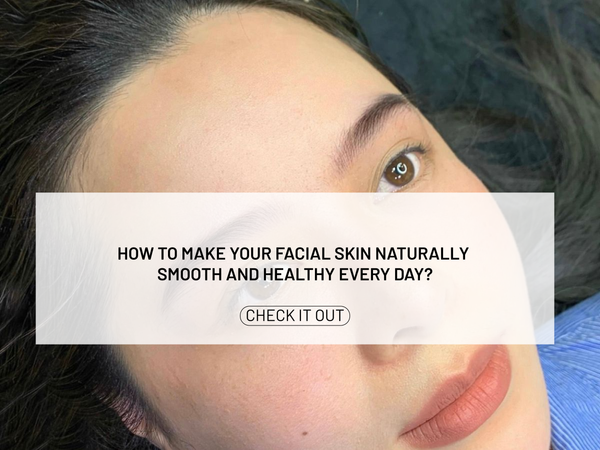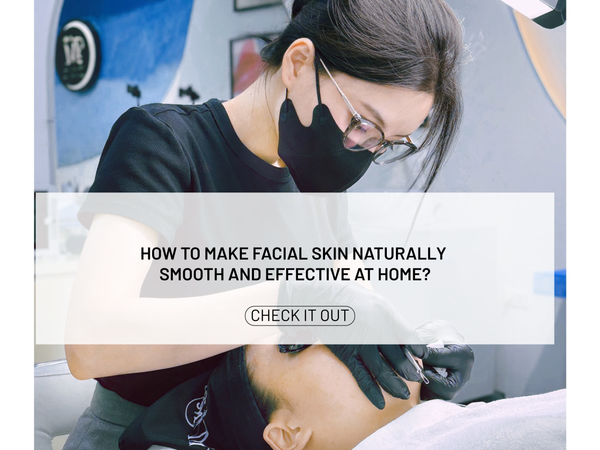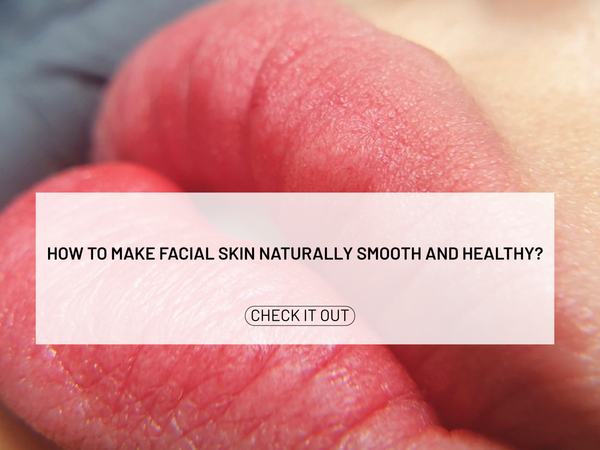What is acne? Learn about the causes and effective prevention methods.
Skin pigmentation is a common condition that many people experience, especially women. Pigmentation often appears as brown or black spots on the skin, affecting the aesthetics and confidence of those affected. This article will help you understand more about skin pigmentation, its causes, and effective prevention methods.
Highlights
- Skin pigmentation is a pigmentation disorder, commonly seen in women.
- There are three types of pigmentation: superficial pigmentation, deep pigmentation, and mixed pigmentation.
- Causes of pigmentation can stem from hormones, the environment, and lifestyle.
- To prevent pigmentation, sunscreen should be used, and a healthy diet should be maintained.
- If there are signs of pigmentation, it is necessary to see a doctor for timely advice.
What is Skin Pigmentation?

Definition of Skin Pigmentation
Skin pigmentation is a condition of hyperpigmentation on the skin, often appearing as patches or spots of brown or black. We often see skin pigmentation in areas of the skin that are frequently exposed to sunlight, such as the face, neck, and arms.
Types of Skin Pigmentation
There are many different types of skin pigmentation, including:
- Patchy pigmentation: Appears in large patches on the skin.
- Spot pigmentation: Small spots, usually darker in color.
- Mixed pigmentation: A combination of patchy and spot pigmentation.
Why is Skin Pigmentation Common?
Skin pigmentation is very common, especially in women. Some main causes include:
- Hormonal changes: Such as during pregnancy or when using birth control pills.
- Sun exposure: Sunlight is the main cause of skin pigmentation.
- Genetics: If someone in the family has pigmentation, there is a high chance we will too.
We need to understand the causes and effective prevention methods for skin pigmentation to protect our skin. Protecting the skin from sunlight and maintaining a healthy lifestyle is very important to prevent pigmentation. If there are signs of pigmentation, it is advisable to consult a dermatologist.
Causes of Skin Pigmentation

Endogenous Causes
Skin pigmentation can arise from various causes, among which endogenous causes play an important role. Some main factors include:
- Hormonal changes: Pregnant women, those using birth control pills, or individuals with hormonal disorders are often more susceptible to skin pigmentation.
- Genetics: If someone in the family has pigmentation, the likelihood of developing this condition is also higher.
- Aging: As age increases, the skin produces more melanin, leading to pigmentation.
Exogenous Causes
In addition to endogenous factors, exogenous causes also contribute to skin pigmentation. We need to pay attention to:
- Sunlight: UV rays from sunlight can stimulate melanin production, increasing the risk of pigmentation.
- Environmental pollution: Dust and harmful chemicals in the air can damage the skin, leading to pigmentation.
- Using unsuitable products: Skincare products containing harmful chemicals can cause irritation and increase skin pigmentation.
Environmental Impact
The living environment also affects the condition of skin pigmentation. We need to be aware of:
- Weather changes: Hot weather can increase melanin production.
- Stress: Stress can disrupt hormones, leading to skin pigmentation.
- Diet: An unhealthy diet can reduce the skin's resistance, making it more vulnerable to damage.
Signs of Skin Pigmentation

External Manifestations
We can recognize skin pigmentation through external signs such as:
- Appearance of patches of skin that are darker than the surrounding areas.
- Pigmentation often appears in areas of the skin that are frequently exposed to sunlight, such as the face, neck, and arms.
- Pigmented patches can be brown, black, or dark yellow.
Distinguishing Skin Pigmentation from Freckles
To distinguish between skin pigmentation and freckles, we need to pay attention to:
- Size: Skin pigmentation is usually larger than freckles.
- Color: Skin pigmentation has a more uniform color, while freckles can have various colors.
- Location: Pigmentation often appears symmetrically on both sides of the face, while freckles can appear in many different locations.
Stages of Skin Pigmentation Development
Skin pigmentation can develop through stages:
- Early stage: Small, light spots appear.
- Middle stage: Pigmented spots become more pronounced and darker.
- Late stage: Pigmentation can spread and become more difficult to treat.
We need to pay attention to these signs to detect and treat skin pigmentation in a timely manner, helping to restore healthy skin.
Treatment for Skin Pigmentation
Using Creams
We can start treating skin pigmentation by using creams containing ingredients like hydroquinone, azelaic acid, or vitamin C. These products help lighten pigmentation and improve skin tone. However, it is important to note that using creams requires patience and proper application to achieve the best results.
Light Therapy
Another method is light therapy, in which high-intensity light is used to eliminate melanin pigmentation. This method usually lasts from 10 to 20 weeks and can yield significant results if performed correctly.
Natural Methods
Additionally, we can also apply natural methods such as using natural masks. Some ingredients like cucumber, honey, or coffee grounds can help brighten the skin and reduce pigmentation. We should experiment and find the method that works best for our skin.
Conclusion
To effectively treat skin pigmentation, we need to be patient and care for our skin properly. Consulting a doctor is also very important to find a treatment method suitable for each individual's skin condition.
Effective Prevention of Skin Pigmentation
Using Sunscreen
We need to protect our skin from the effects of sunlight. Using sunscreen with an SPF of over 30 is very important. Remember to apply sunscreen 15 to 30 minutes before going outside.
Healthy Diet
A balanced diet will help keep the skin healthier. We should:
- Drink enough water (1.5 - 2 liters per day).
- Eat plenty of vegetables and fruits rich in vitamins.
- Limit fast food and alcoholic beverages.
Avoid Stress
Stress can worsen skin pigmentation. To reduce stress, we can:
- Take time to relax after school or work.
- Exercise regularly to improve health.
- Practice breathing exercises or meditation to relax the mind.
By implementing these measures, we can minimize the risk of skin pigmentation and maintain healthy skin.
Who is at Risk for Skin Pigmentation?
Pregnant Women
Pregnant women are at high risk for skin pigmentation. Hormonal changes during this period can stimulate melanin production, leading to pigmentation.
People with Dark Skin
Individuals with dark skin are often more susceptible to pigmentation. This is because melanin pigment is already present in the skin, making it more easily affected by external factors.
People with Hormonal Disorders
Individuals with hormonal-related conditions, such as ovarian or thyroid disorders, are also at high risk for skin pigmentation. Hormonal imbalance can increase skin pigmentation.
We need to pay attention to these groups to have timely prevention and treatment measures.
When to See a Doctor?

Signs to Watch For
We need to pay attention to the following signs to know when to see a doctor:
- Appearance of dark brown patches on the skin that do not fade after a while.
- Skin inflammation or signs of redness and swelling.
- Skin pigmentation does not improve after applying home treatment methods.
Benefits of Early Consultation
Early consultation can bring many benefits:
- Helps detect skin pigmentation early and have timely treatment methods.
- Prevents skin pigmentation from becoming more severe.
- Increases the effectiveness of treatment and saves costs.
Diagnostic Methods
When visiting a doctor, we may undergo some diagnostic methods such as:
- Clinical examination to assess the skin condition.
- Blood tests to check for hormonal issues.
- Using imaging technology to analyze the skin condition.
We should remember that proper and timely skin care will help protect our skin most effectively!
If you feel unwell or have unusual symptoms, do not hesitate to see a doctor. Timely consultation can help you detect and treat health issues early. Please visit our website to learn more about the healthcare services that MinT Foundation provides!
Conclusion
Skin pigmentation is a common issue that many people face, especially women. To prevent and minimize this condition, proper skin care is very important. Protect your skin from sunlight, use sunscreen regularly, and maintain a healthy diet. If you have already developed pigmentation, do not worry too much; consult a dermatologist for timely advice and treatment. Remember, taking care of your skin not only helps you achieve beautiful skin but also boosts your confidence in life.
Frequently Asked Questions
What is skin pigmentation and what causes it?
Skin pigmentation is a skin condition characterized by dark spots, often due to the effects of sunlight, hormones, or genetics.
What types of skin pigmentation are there?
There are three main types of skin pigmentation: superficial pigmentation, deep pigmentation, and mixed pigmentation, each with different characteristics and severity levels.
Who is most at risk for skin pigmentation?
Women, especially during pregnancy or menopause, are at higher risk than men.
Can skin pigmentation be treated?
Yes, but it requires early detection and the application of appropriate treatment methods such as creams or light therapy.
How can skin pigmentation be effectively prevented?
Use sunscreen, avoid direct sunlight, maintain a healthy diet, and reduce stress.
When should I see a doctor about skin pigmentation?
If you notice new pigmentation spots or have severe symptoms, consult a dermatologist for advice.



